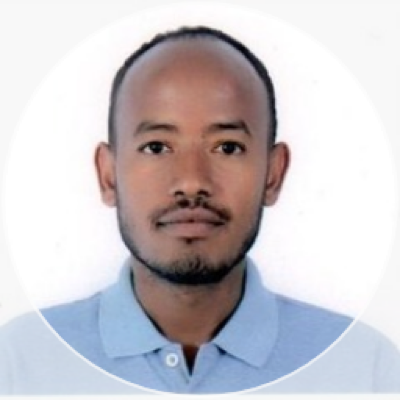
November 14, 2019, by Lexi Earl
Solving micronutrient deficiencies in staple crops: an interview with Mesfin Kebebe
Mesfin Kebebe is a UoN-RRes PhD studentship recipient. Their project is titled: Optimization and efficiency of soil geochemistry at national scale for improved human nutrition. Their supervisors are Dr Stephan Haefele (RRes), Prof. Martin Broadley (UoN), Dr Kirsty Hassall (RRes), Dr Samel Gameda (CIMMYT-Ethiopia) and Dr Tilahun Amede (ICRISAT-Ethiopia).
Tell us about how you came to do a PhD and what it has been like so far?
I am delighted to share my personal experiences so far as a first-year Future Food Beacon PhD student at the University of Nottingham (UoN) and Rothamsted Research (RRes) in the UK. My research career began in the early 2000s at the Ethiopian Institute of Agricultural Research (EIAR), a national research institute working on generating agricultural technology and information. The outputs of their work are used to improve the livelihoods of farming communities which make up 85% of the total population. I moved from the EIAR to a vibrant new organization, the Ethiopian Agricultural Transformation Agency (ATA), before then getting a position in an international research organization focusing on improving maize and wheat production and productivity under CIMMYT. As a research associate at CIMMYT, I was responsible for establishing field trials, including data collection and management. Along with these trials, my role included discussions with farmers about their opinions, which would inform design of the trials.
My PhD is part of the GeoNutrition project, whose objectives include mapping soils and biofortifying staple food crops with the micronutrients zinc and selenium through the use of fertilisers. It includes field trials on farms and research stations in the Amhara region of Ethiopia, working together with scientists at CIMMYT and ICRISAT. My project is seeking to optimise micronutrient fertiliser rates according to soil type and landscape features in Ethiopia.
In 2018, we established ~105 on-farm trials in three different districts in the Amhara region and four on-station trials in three different districts with two soil types in the same region. The wider project team visited these trials in October 2018. At harvest in early 2019, soil and plant samples were prepared and a subsample was shipped to UoN and RRes for further analysis, with a portion of the samples retained in Ethiopia for further analyses.

Mesfin in the field in Ethiopia with Prof Martin Broadley and others
My research focusses on studying the basics of soil dynamics in relation to adsorption-desorption studies on Zinc, followed by establishing greenhouse experiments with source, rate and timing of Zinc applications to improve the grain Zn quality of teff (Eragrostis tef) in 2019-2020 and a further test of these findings on the farmer field in the 2021-2022 cropping seasons.
The early stages of my PhD have included supervisory meetings at UoN and RRes, the development of a draft research proposal, and training in soil analyses at RRes which is my primary location. In addition, I have taken advanced training courses, including statistics, and attended several research seminars. Whilst coming to terms with the cold winter, I have had ample chance to learn about the state of art research and knowledge from this unique institute (Rothamsted Research) that was founded over 170 years ago. Most agricultural researchers I know in Ethiopia would be so happy and inspired to be working at Rothamsted and/or universities like Nottingham.
Why did you decide to do this particular PhD?
Micronutrient deficiencies, usually termed as hidden hunger or MND, are becoming a serious health threat to nearly 80% of the 110 million people who lived in rural areas with limited access to fortified food and food supplements in Ethiopia. Hence, biofortifications of their own cultivated staple food crops is the only feasible and viable option to address hidden hunger and improve health through nutrition in Ethiopia. Therefore, I just wanted to be a part of this novel idea and get the chance to pursue my degree in this area with a focus on Zinc.

Harvesting field trials
How is doing a PhD different from your previous degrees?
I completed both my degrees (MSc, BSc) at home in Ethiopia and many things were limited including resources, chemicals and advanced laboratory equipment thus restricting my ability to do experiments. There was also less supervision, which focused mainly on the theoretical aspects of the science. Here in the UK, I have close supervision with regular monthly updates and the practical aspect of the sciences with full access to well fitted labs to do the experiments I need to do for my research.
How do you relax and cope with the stress of a PhD?
Initially, as I directly dived into the ocean of knowledge that is filled with lots of expertise I experienced fear and stress. How I can cope with the knowledge with these groups have found? Interestingly enough, as time goes on, the people around me are positive, very helpful and very sociable, and I started to cheer up and started the journey with a good mood.

Weighing selenium fertilisers in the lab in Ethiopia
No comments yet, fill out a comment to be the first

Leave a Reply